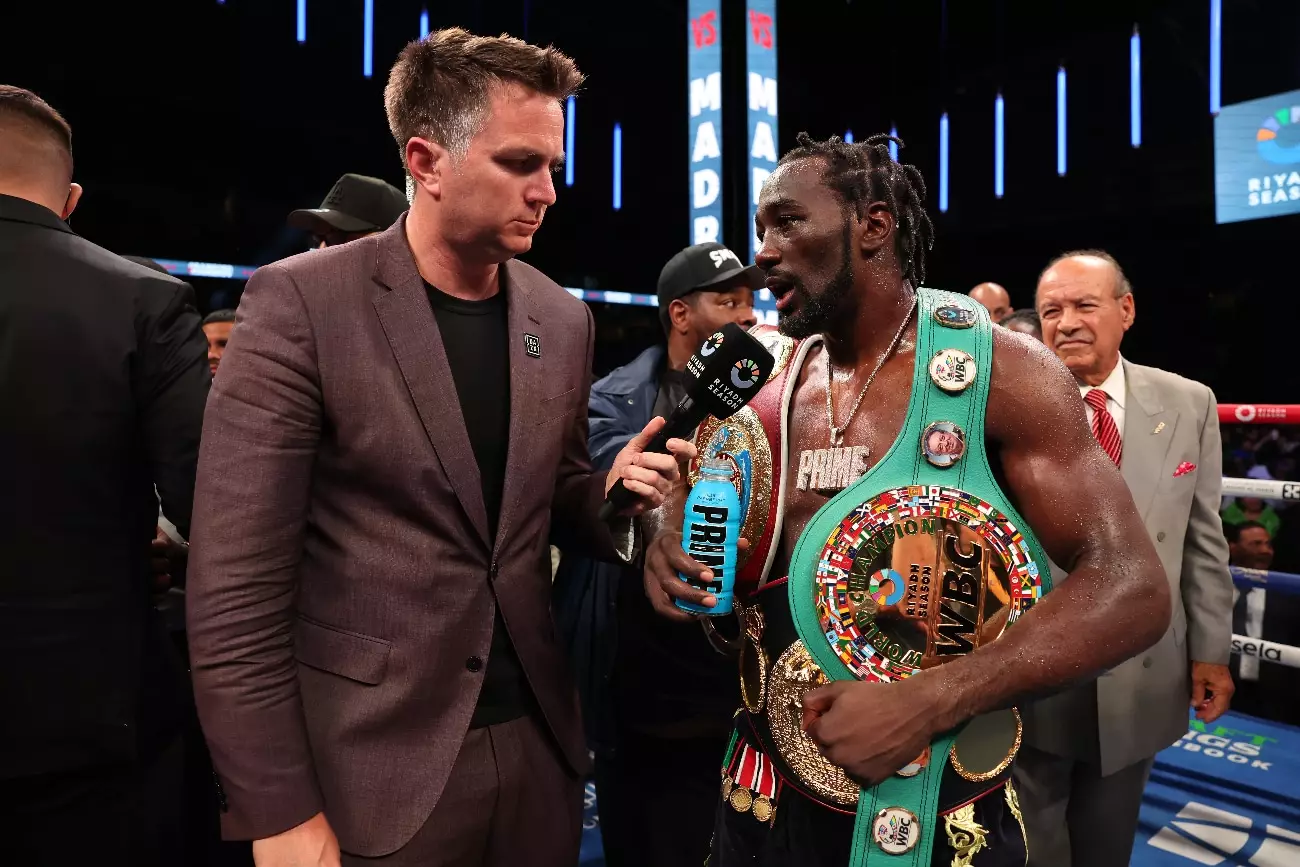The boxing world has recently been abuzz with discussions surrounding the potential matchup between Terence Crawford and Canelo Alvarez. Crawford, an accomplished welterweight champion, has been relentless in calling out Alvarez, the reigning middleweight superstar. Both fighters have established themselves among the best in the sport, boasting impressive records and championships. However, the discourse surrounding their potential fight raises questions about the motivations behind Crawford’s persistent challenge, especially considering his recent performance and the weight advantage Canelo holds.
Crawford has acknowledged that the primary concerns in facing Canelo would revolve around “power and size.” This admission hints at a recognition of Alvarez’s capabilities—both physically and in terms of knockout potential. However, Crawford believes that his own advantages in reach and speed could help him navigate the challenges posed by Canelo’s more extensive physical attributes. With Alvarez sitting at 62 wins and 2 losses, coupled with 39 knockouts, Crawford’s bravado is admirable, but the reality of combat sports often hinges on more than just attributes; it’s about performance under pressure.
Crawford’s Quest for Recognition or Retirement Payday?
The motivations behind Crawford’s call-out of Canelo Alvarez can be scrutinized further. In the world of boxing, the term “retirement payday” is often assigned to matchups featuring veterans seeking financial windfalls in their waning years. Concerns emerge that Crawford, despite his undefeated record of 41-0 with 31 KOs, might be leaning towards a similar fate. Following a lackluster performance against Israil Madrimov, the narrative suggesting Crawford lacks the talent to genuinely challenge Canelo has picked up traction.
Critics argue that Crawford is opting for this route to avoid the harder work involved in fighting other deserving contenders in the stacked divisions below Canelo’s weight class. The 154 and 147-pound divisions brim with potential opponents, but Crawford seems focused on the high-stakes allure of facing Alvarez. This path raises questions about his strategic thinking; by fixating on a high-profile showdown, is he neglecting to refine his skills and attain titles that might boost his legacy?
During a recent post-fight press briefing, Canelo’s retraction from discussing the call-out indicated a weariness. His “no comment” response may reflect more than mere fatigue from media attention—it could signal a sense of disinterest or frustration, particularly with someone who, despite their impressive record, seems to be taking shortcuts to financial success rather than earning their stripes through business inside the ring.
With Alvarez already establishing his worth with a staggering 150 million dollar asking price for a potential fight, there’s a palpable disconnect between the perceived high stakes and the reality of carefully managing a career. For Canelo, being pressured into a fight that lacks the buildup of anticipation or critical acclaim could tarnish his legacy.
While fans passionately debate the merits of Crawford versus Canelo, one must ponder: could this fight be more beneficial for Crawford than Canelo? Crawford’s image has indeed suffered due to what many perceive as obsessive attempts to clinch a lucrative matchup. The question of whether he should have focused on solidifying his standing within his own weight class rather than chasing a potentially unwinnable bout becomes pivotal.
Fighting for the sake of financial gain risks overshadowing the essence of competition itself—a lesson many fighters learn too late. In Crawford’s case, investing in performance rather than solely in the pursuit of a high-profile clash could rejuvenate his reputation and legacy.
Ultimately, from both strategic and business perspectives, the boxing community watches closely as Crawford and Alvarez navigate their respective pathways. The sport thrives on genuine competition and rivalries developed over time. In transcending mere business deals, perhaps Crawford should consider a return to the ethos of challenging himself purely for sport. Only then could he find his own standing in the narrative of boxing history.

